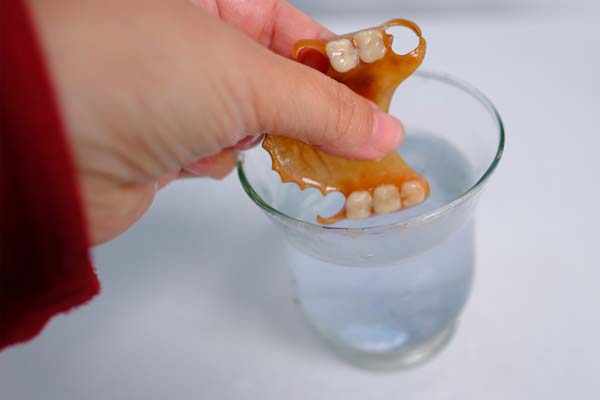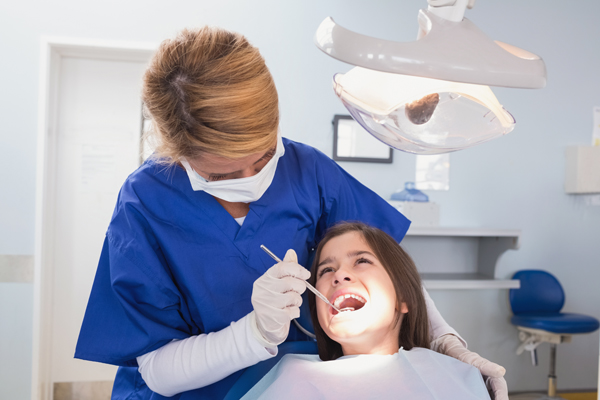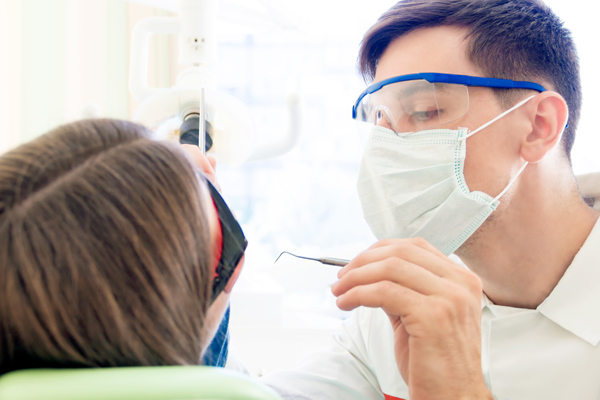What Foods to Avoid If You Have Partial Dentures

Partial dentures can be an affordable way to replace missing teeth. They can restore your smile, and they cost significantly less than alternatives like implants or dental bridges.
Dentists typically recommend partial dentures when a patient has only lost some of their teeth. However, complete denture sets are recommended for those who have lost most of their natural teeth.
Replacing missing teeth with partial dentures does not require any invasive procedures, and your artificial teeth can be ready in as little as two weeks. The oral prosthetic can close up the gaps in your smile and restore the function of your lost teeth.
Getting used to life with partial dentures
Partial dentures can take time to get used to, particularly when it is time to eat. Having an artificial object in the mouth can feel awkward, so expect to go through an adjustment period to learn how to speak and eat with the prosthesis. Here are a few tips on how to eat with partial dentures and foods to avoid.
1. Taking your time
Trying to eat with partial dentures is different from eating with real teeth. But taking the time to learn to eat with artificial teeth is all a part of the process.
Most people do not have to think much about chewing food with natural teeth because the nerves inside them send signals to the brain, signaling how hard to chew. However, the artificial teeth attached to partial dentures are not connected to the brain, making it harder to gauge how hard to chew food. Patients should stick with soft foods like cereals, fish, vegetables, potatoes, and eggs when they first start wearing partial dentures.
2. Avoiding biting with the front teeth
Biting down with artificial teeth at the front of the mouth can cause damage to the oral prosthetic, and it typically feels awkward. It is better to cut things down into smaller sizes that can be placed in the mouth and chewed.
Foods to avoid when wearing partial dentures
Some foods are harder to break down with artificial teeth, and trying to force the issue can lead to the prosthesis becoming damaged. Common foods that patients should stay away from when wearing partial dentures include:
- Nuts: Hard foods like almonds and peanuts can easily damage the artificial teeth attached to partial dentures
- Steaks: This can be tough for some people to avoid, but chewy foods like steaks put stress on the dentures and jaw, leading to pain and discomfort
- Hard candy: Avoid biting down on these at any cost because they can damage partial dentures
- Foods with tiny bits: Foods like popcorn can easily get stuck between artificial teeth, damaging them
Explore partial dentures
Partial dentures might be the right solution for you if you are missing a few teeth. Give us a call or visit our Placentia clinic to set up a consultation with our dentist.
Request an appointment here: https://www.pacifichorizondentalarts.com or call Pacific Horizon Dental Arts at (714) 260-0763 for an appointment in our Placentia office.
Check out what others are saying about our dental services on Yelp: Partial Dentures for Back Teeth in Placentia, CA.
Recent Posts
Want to replace your Implant Crown? The difference between an implant crown and a dental crown is that implant crowns are placed over a dental implant that has been surgically inserted into a patient's jawbone due to a missing tooth, and a dental crown is a crown that has been placed over an existing natural…
Children's oral health lays the foundation for a lifetime of healthy smiles. Pediatric dentists can promote proper oral and speech development by identifying and treating dental issues early on. Since these dental providers complete the training necessary to deliver tailored care for the needs of young patients, they are typically the best choice for children's…
Are you thinking about getting dental sealants? While this preventive dental treatment is commonly used on children's teeth to prevent the formation of cavities, it can also protect adults' teeth. According to WebMD, dental sealant is a thin plastic coating painted on the chewing surfaces of teeth, usually the back teeth, to prevent tooth decay.Understanding…
A cosmetic dentist plays a crucial role in enhancing both the function and appearance of a patient's teeth. Some treatments are more effective for a smile's appearance than its function. Understanding the difference between corrective and aesthetic dentistry is essential for anyone considering dental improvements.Corrective dentistry addresses structural problems and functional issues within the oral…


